One of the joys of living in the digital age is that we have a wealth of information at our fingertips. Gone are the days of traipsing to the nearest library, or paging through an old encyclopedia, to discover the who, what, when, where and hows of the world.
Wikipedia has become a favorite go-to for knowledge seekers. The page describes itself as “the free encyclopedia that anyone can edit,” and we just need to stress that *anyone* is the operative word. Among the more than 7 million articles, you’ll find some super interesting entries. But you might also come across a few ridiculously funny things that could easily have been crafted by comedians.
There's an Instagram account that highlights these hilarious Wiki entries. It's called Depths of Wikipedia and has more than 1.5 million followers. As the bio aptly states, "Wikipedia is weird!" and we would have to agree. Bored Panda has put together our favorite posts from the page. They're proof that learning something new doesn't always have to be serious, and sometimes facts can come with a side serving of funny.
#1

Image credits: depthsofwikipedia
More than 120 million people use Wikipedia as a way to find out more about the world we live in. Wikipedia describes itself as a "free online encyclopedia that is written and maintained by a community of volunteers, known as Wikipedians, through open collaboration and the wiki software MediaWiki."
While much of the site's information is reliable, some isn't. And Wikipedia has come under fire in the past for some of the stuff it has published. "Although Wikipedia's volunteer editors have written extensively on a wide variety of topics, the encyclopedia has been criticized for systemic bias, such as a gender bias against women and geographical bias against the Global South (Eurocentrism)," reads a Wikipedia entry.
The same article states that unlike traditional encyclopedias, Wikipedia follows the "procrastination principle" regarding the security of its content, meaning that it waits until a problem arises to fix it.
#2

Image credits: depthsofwikipedia
#3
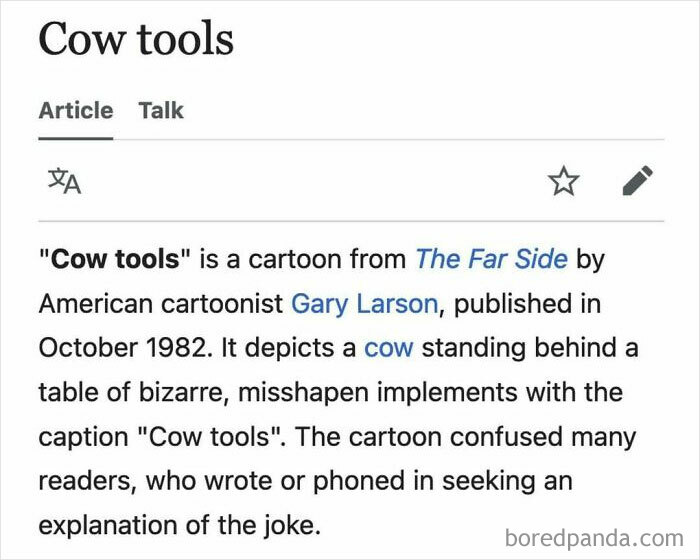
Image credits: depthsofwikipedia
The Wikipedia community is based on a limited number of standard principles, notes Britannica.com. "One important principle is neutrality. Another is the faith that contributors are participating in a sincere and deliberate fashion," reads that site, adding that readers can correct what they perceive to be errors, and disputes over facts and over possible bias are conducted through contributor discussions.
Britannica adds that the other guiding principles are to keep within the defined parameters of an encyclopedia, to respect copyright laws, and to consider any other rules to be flexible. "The last principle reinforces the project’s belief that the open-source process will make Wikipedia the best product available, given its community of users," notes Britannica.
#4
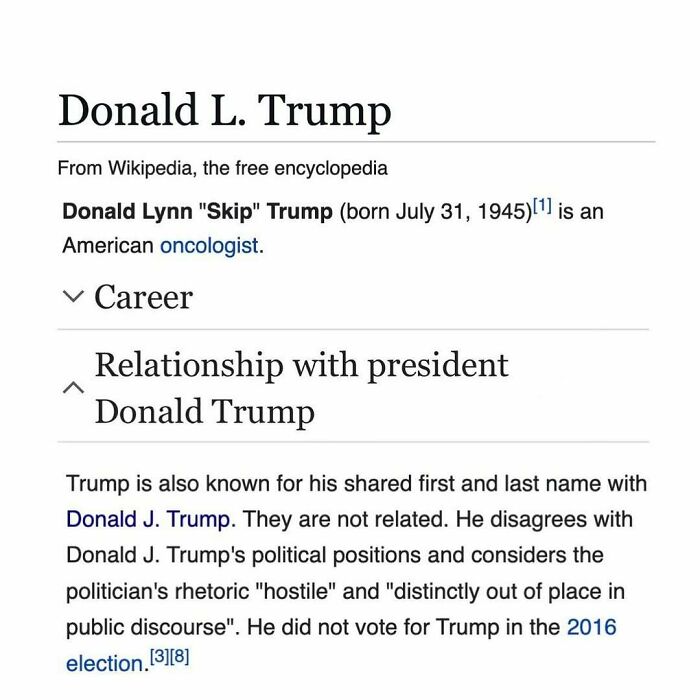
Image credits: depthsofwikipedia
#5

Image credits: depthsofwikipedia
One of the issues Wikipedia faces is what it calls "vandalism." The site describes this as any change that deliberately compromises Wikipedia's integrity. "The most common and obvious types of vandalism include additions of obscenities and crude humor; it can also include advertising and other types of spam," reads a Wiki entry.
It adds that editors can sometimes commit vandalism by removing content or entirely blanking a given page. But less common types of vandalism, like the deliberate addition of "plausible but false information," can be more difficult to detect.
Vandals can also introduce irrelevant formatting, modify page semantics such as the page's title or categorization, manipulate the article's underlying code, or use images disruptively, notes Wikipedia.
#6
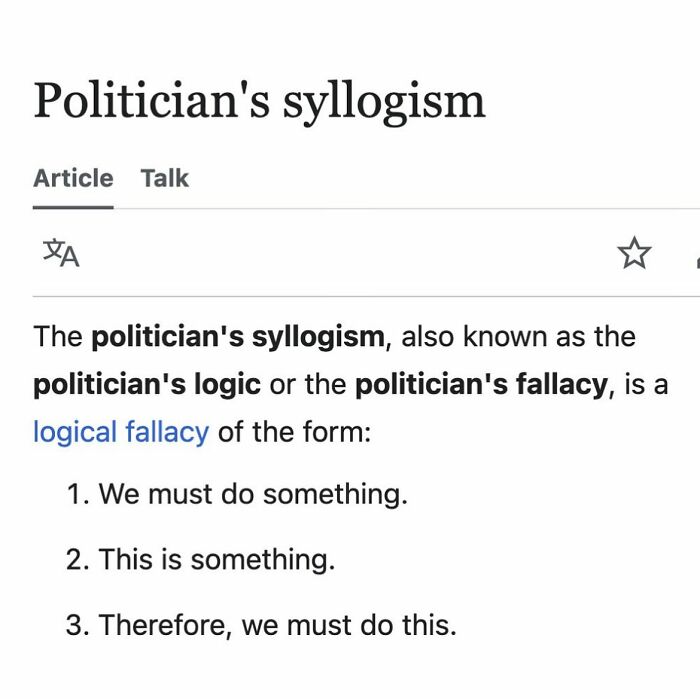
Image credits: depthsofwikipedia
As we mentioned earlier, Wikipedia encourages anyone to write or edit for them. As you might know, you do not have to log in to the site to read Wikipedia, nor do you have to log in to edit Wikipedia articles.
"Just about anyone can edit almost any article at any given time, even without logging in," reads the Contributing to Wikipedia page. But the admins encourage editors to create an account and log in, saying that you'll then have the ability to create pages, upload media and edit without your IP address being visible to the public.
#7
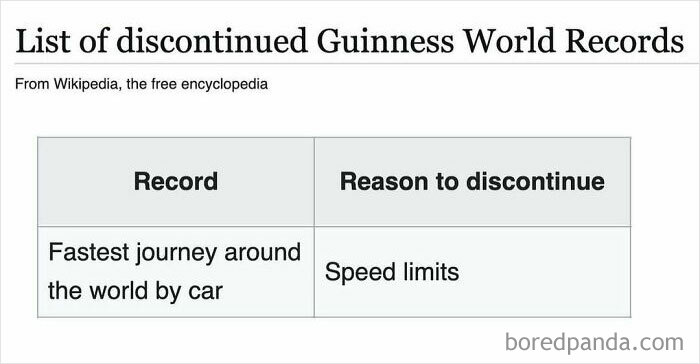
Image credits: depthsofwikipedia
#8
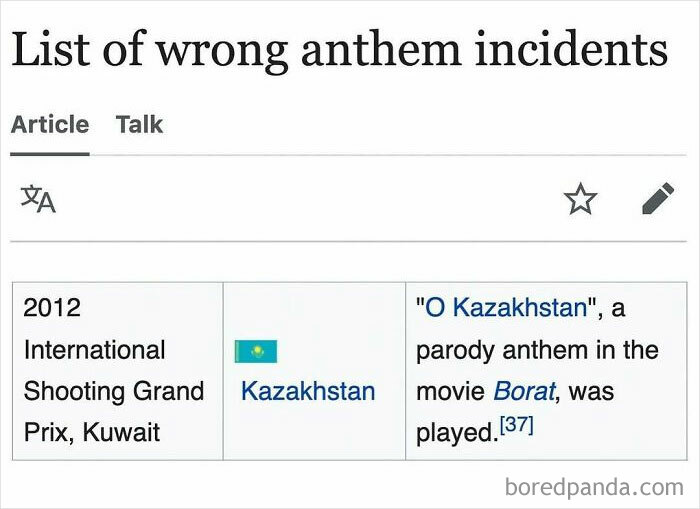
Image credits: depthsofwikipedia
#9
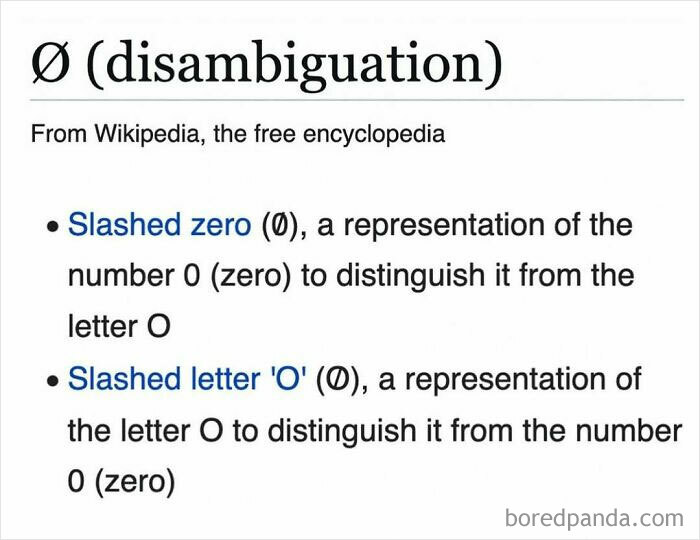
Image credits: depthsofwikipedia
According to Wikipedia, the goal of an article is to create a comprehensive and neutrally written summary of existing mainstream knowledge about a topic. "Editors are encouraged to be bold in editing in a fair and accurate manner with a straightforward, just-the-facts style," advises the site. "Articles should have an encyclopedic style with a formal tone instead of essay-like, argumentative, promotional, or opinionated writing."
#10
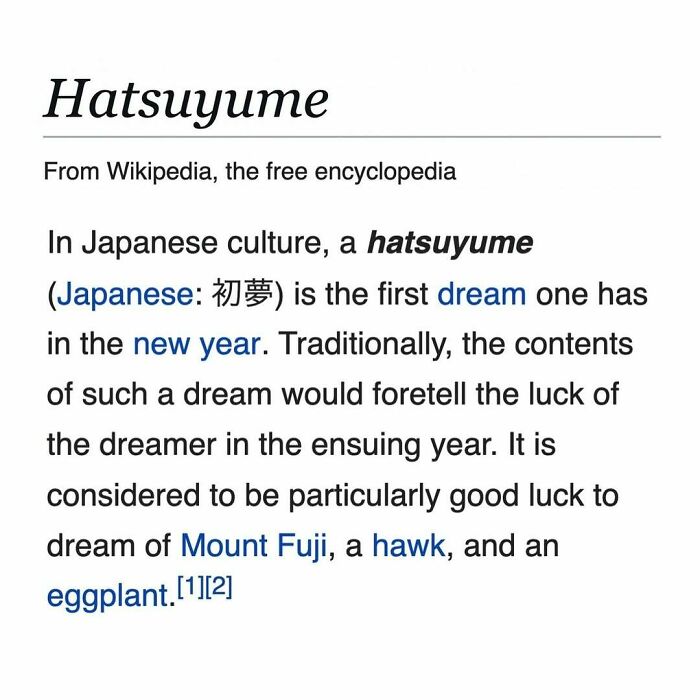
Image credits: depthsofwikipedia
#11

Image credits: depthsofwikipedia
#12

Image credits: depthsofwikipedia
If you're considering contributing to Wikipedia, the topic of your article will need to be notable. "It must have in-depth coverage in reliable sources that are independent of the topic," explains the site. "Make sure there isn't already an article about the topic. The article you write must include citations to the sources you used."
They also advise that you use your own words to write the article and do not just copy from sources word-for-word.
#13
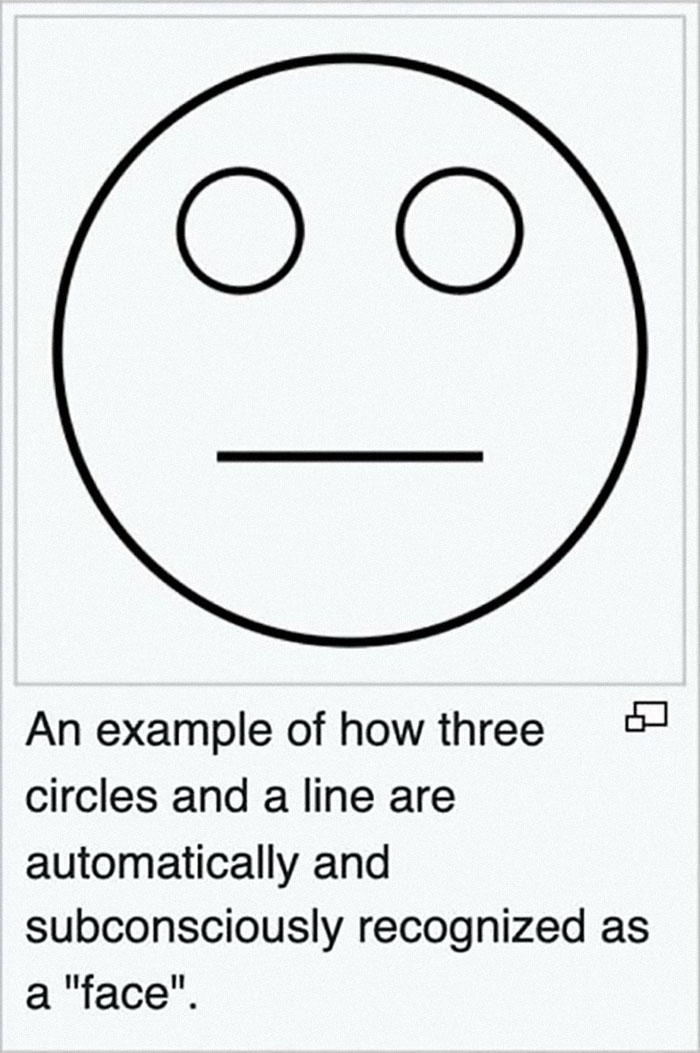
Image credits: depthsofwikipedia
#14
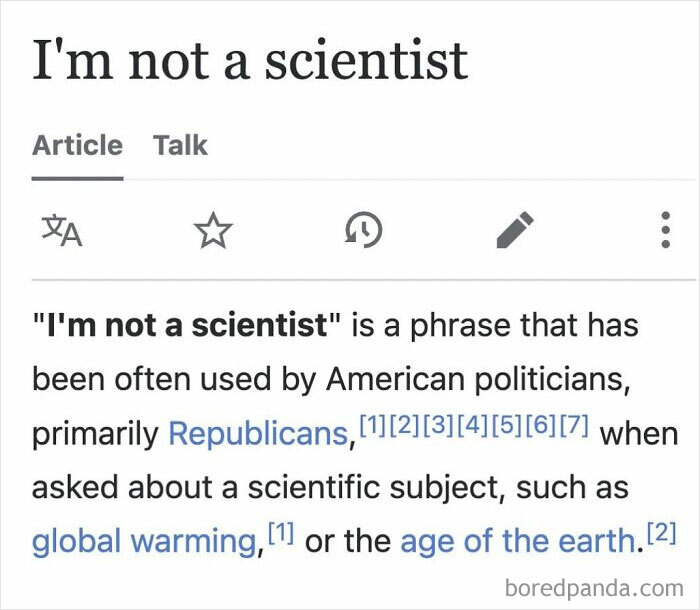
Image credits: depthsofwikipedia
#15
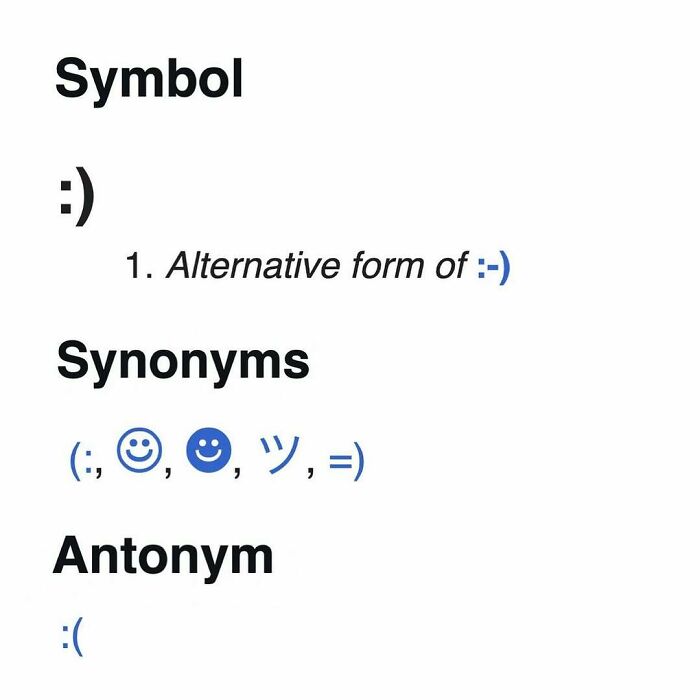
Image credits: depthsofwikipedia
#16

Image credits: depthsofwikipedia
#17
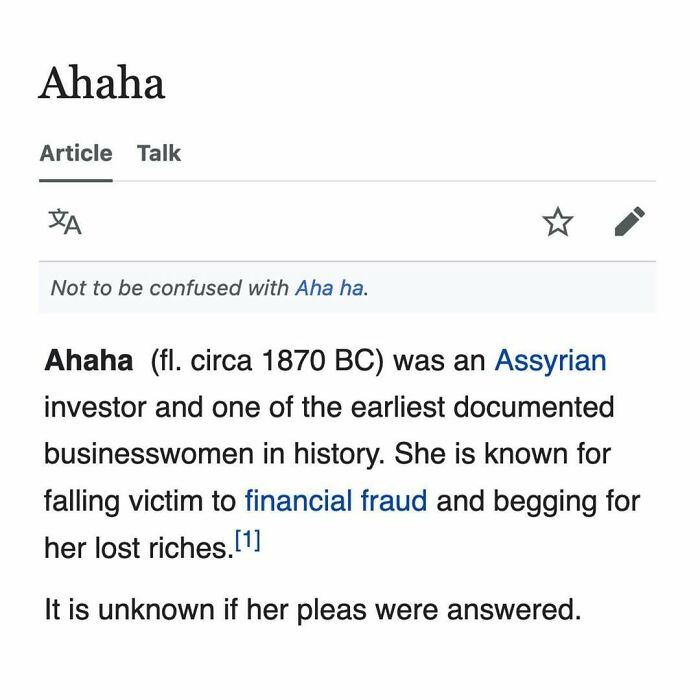
Image credits: depthsofwikipedia
#18
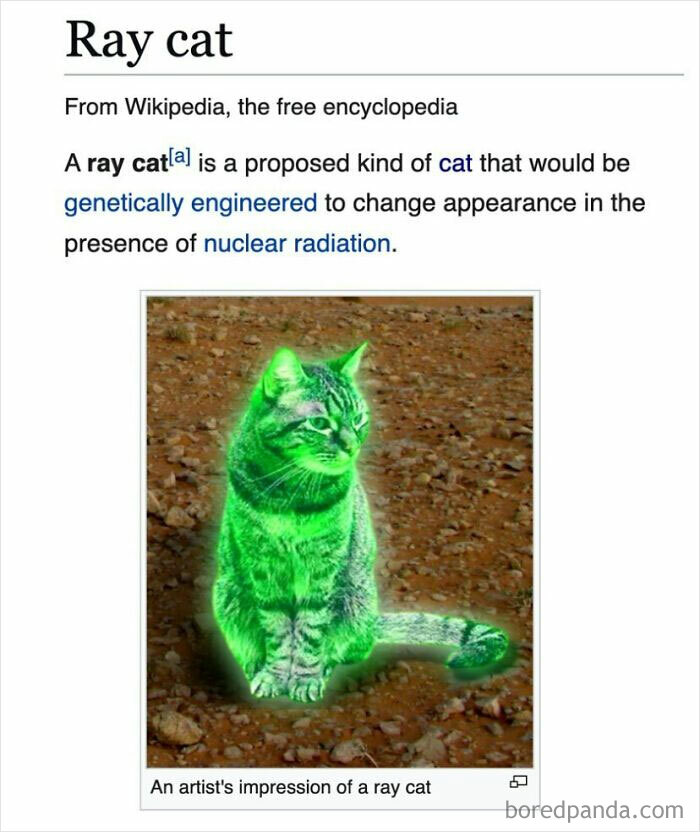
Image credits: depthsofwikipedia
#19
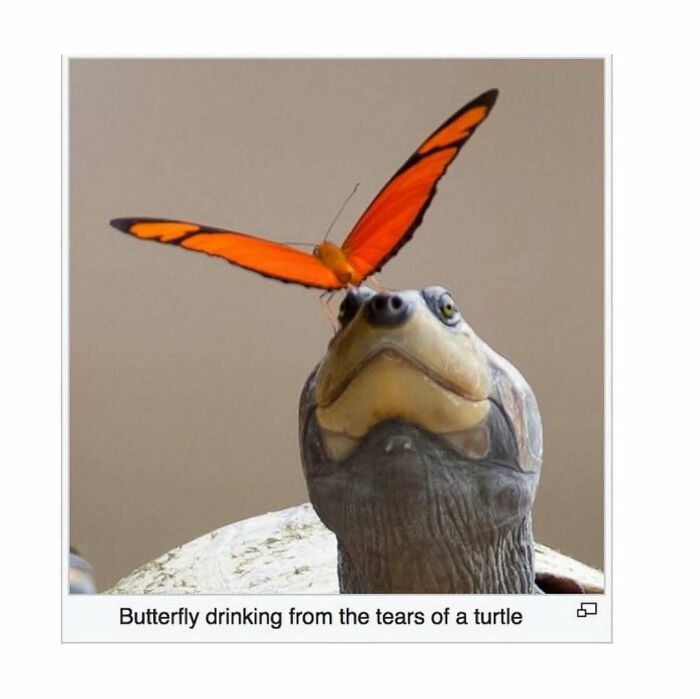
Image credits: depthsofwikipedia
#20

Image credits: depthsofwikipedia
#21
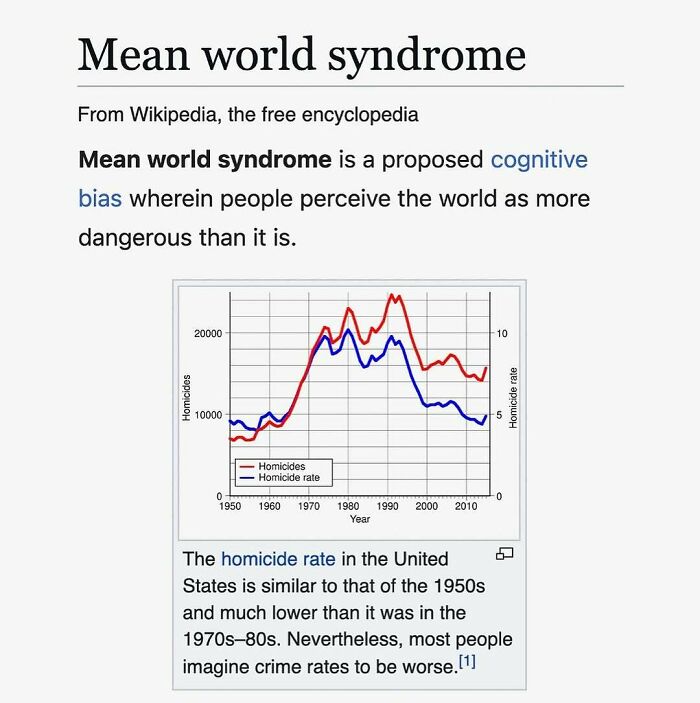
Image credits: depthsofwikipedia
#22
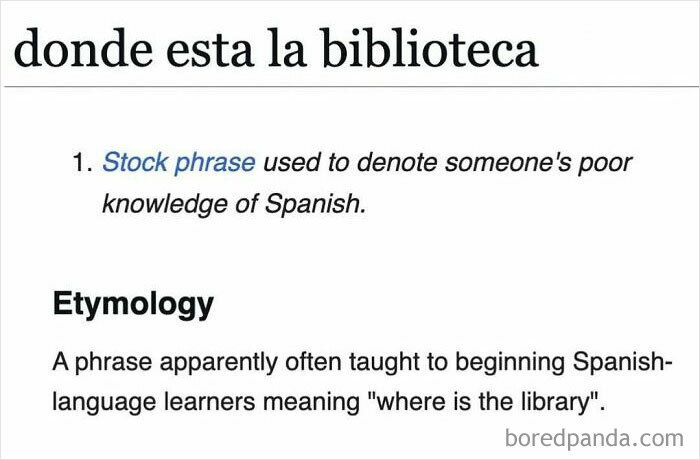
Image credits: depthsofwikipedia
#23
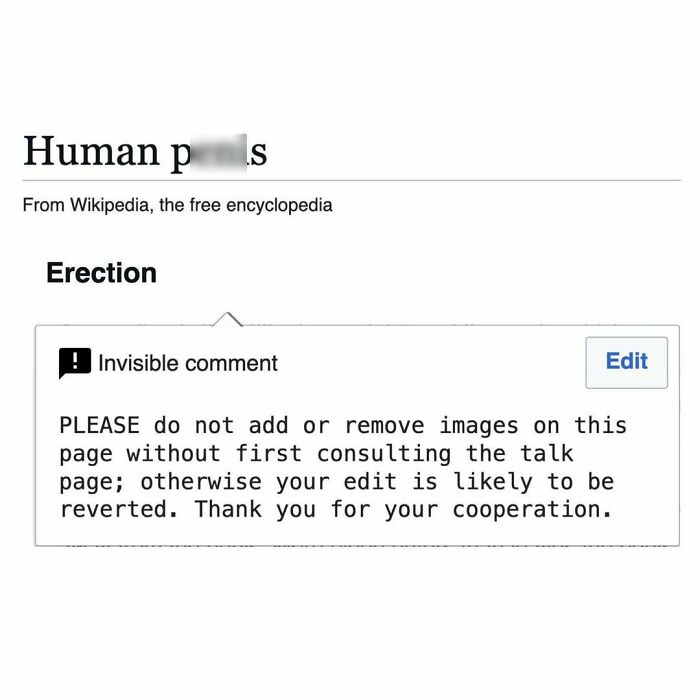
Image credits: depthsofwikipedia
#24
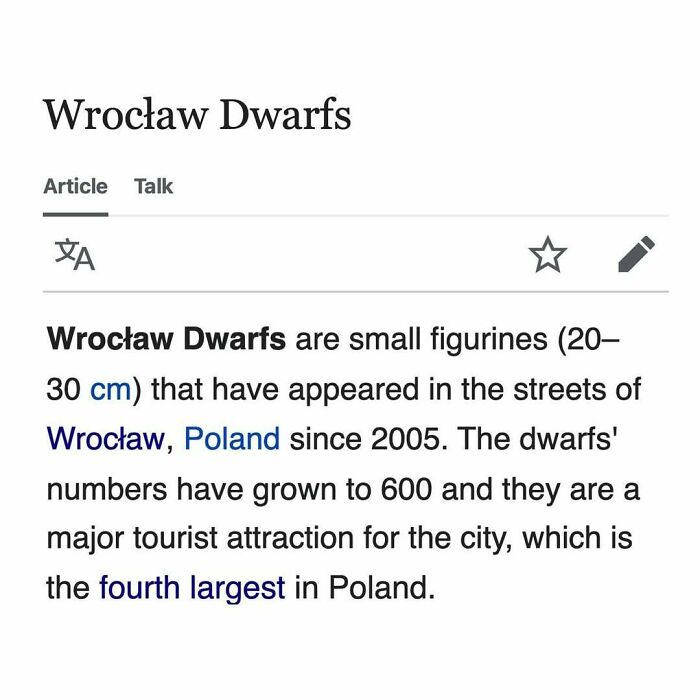
Image credits: depthsofwikipedia
#25

Image credits: depthsofwikipedia
#26
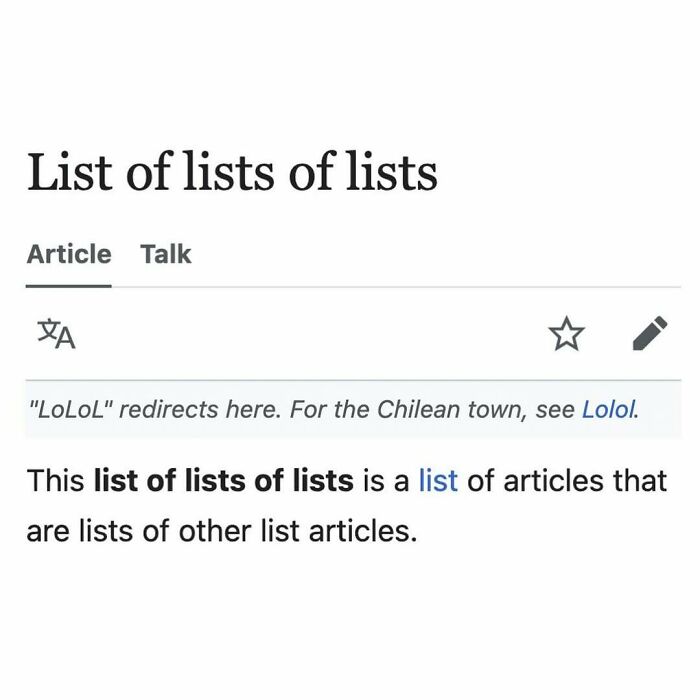
Image credits: depthsofwikipedia
#27
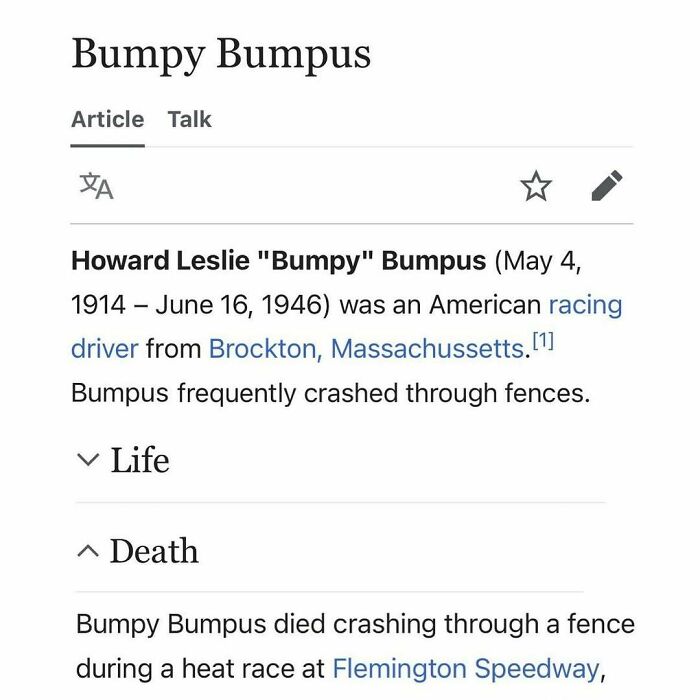
Image credits: depthsofwikipedia
#28
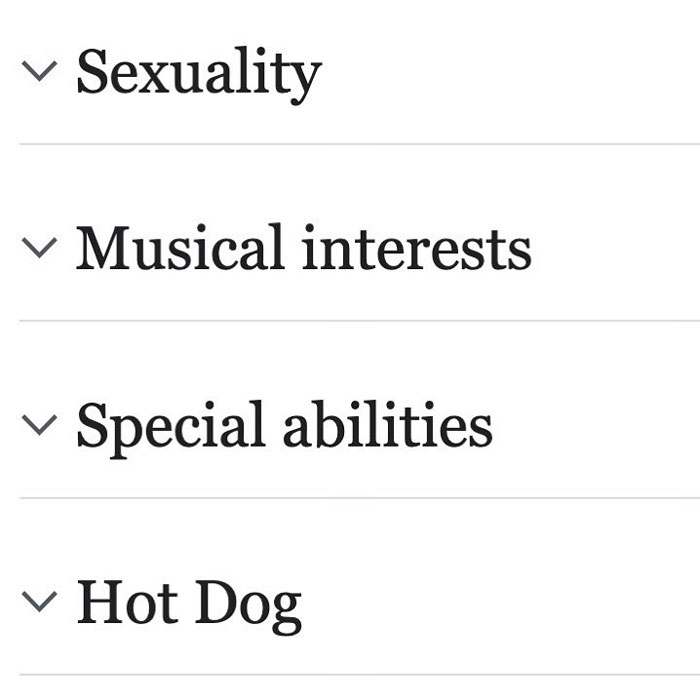
Image credits: depthsofwikipedia
#29
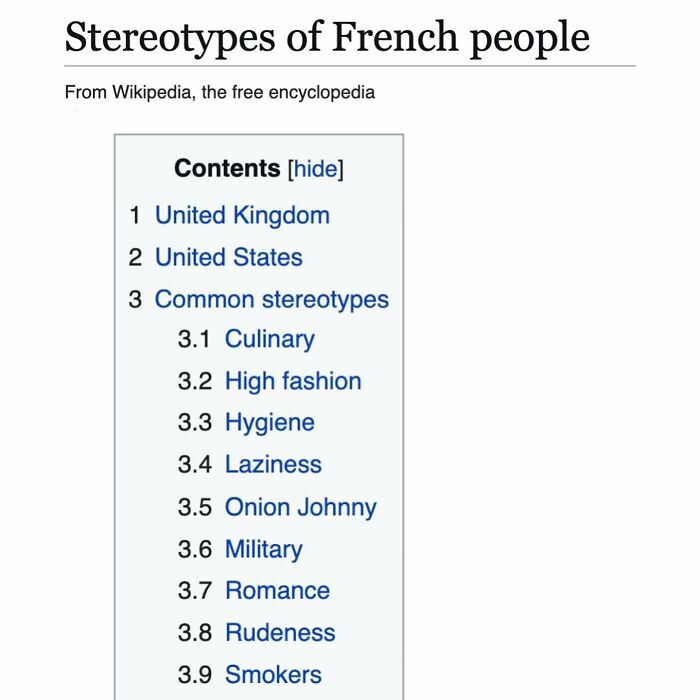
Image credits: depthsofwikipedia
#30

Image credits: depthsofwikipedia
#31

Image credits: depthsofwikipedia
#32
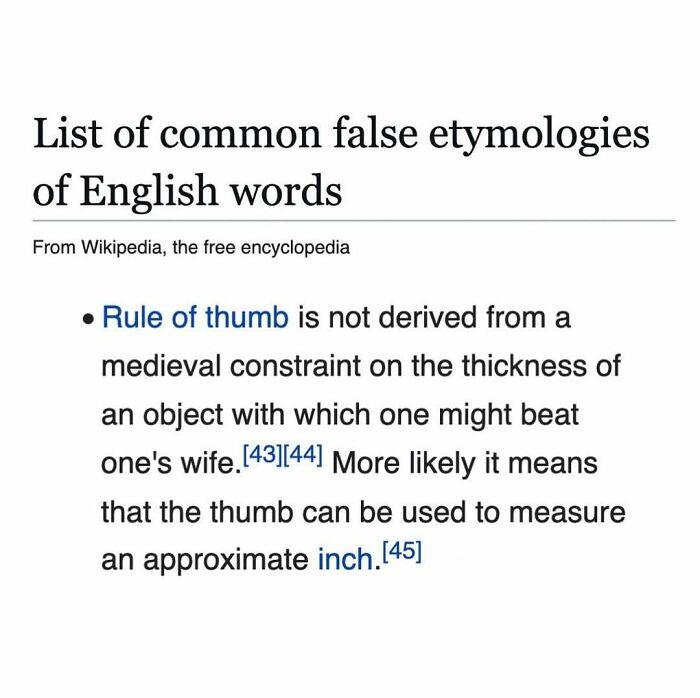
Image credits: depthsofwikipedia
#33

Image credits: depthsofwikipedia
#34

Image credits: depthsofwikipedia
#35

Image credits: depthsofwikipedia
#36
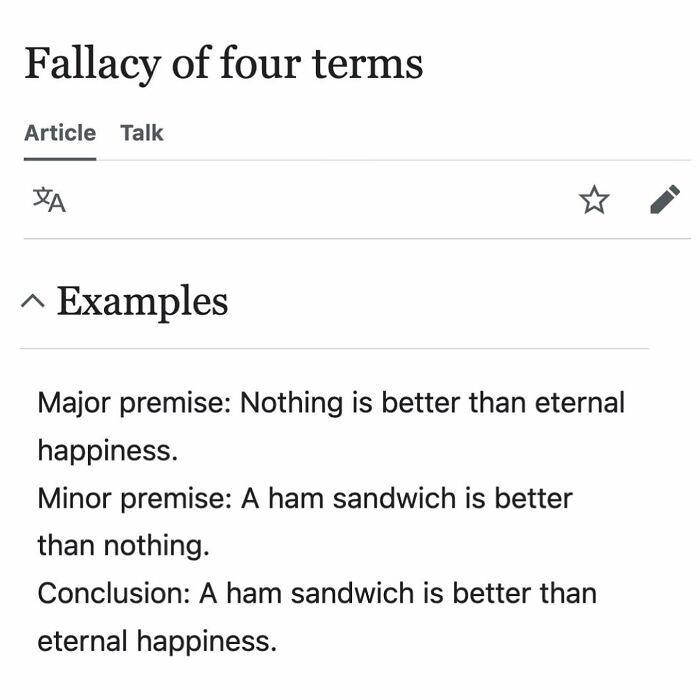
Image credits: depthsofwikipedia
#37
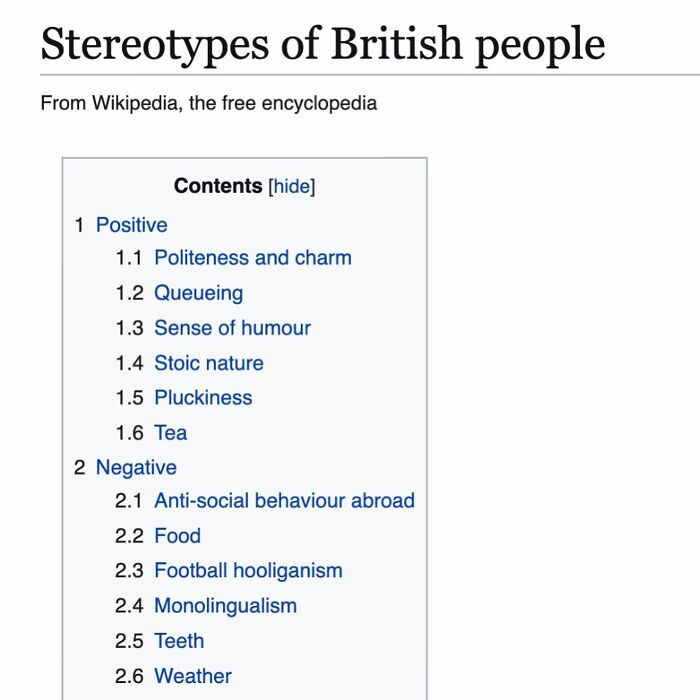
Image credits: depthsofwikipedia
#38

Image credits: depthsofwikipedia
#39

Image credits: depthsofwikipedia
#40
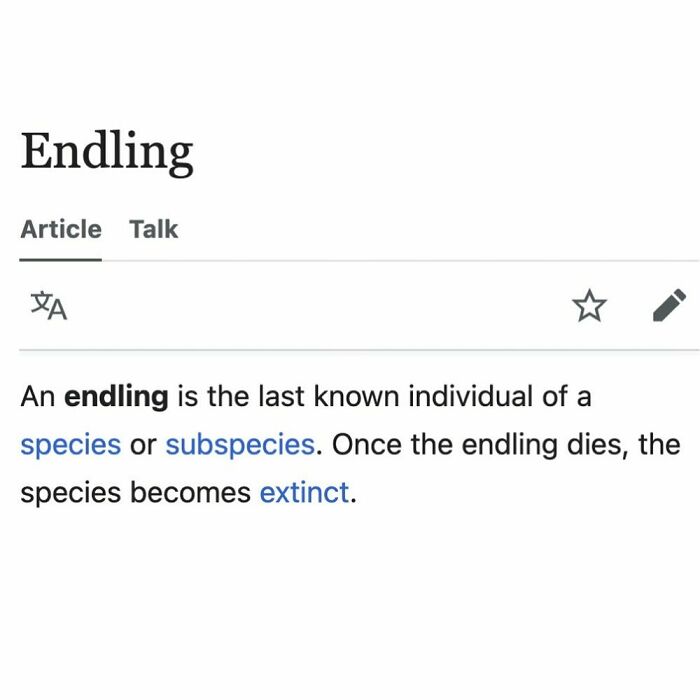
Image credits: depthsofwikipedia
#41
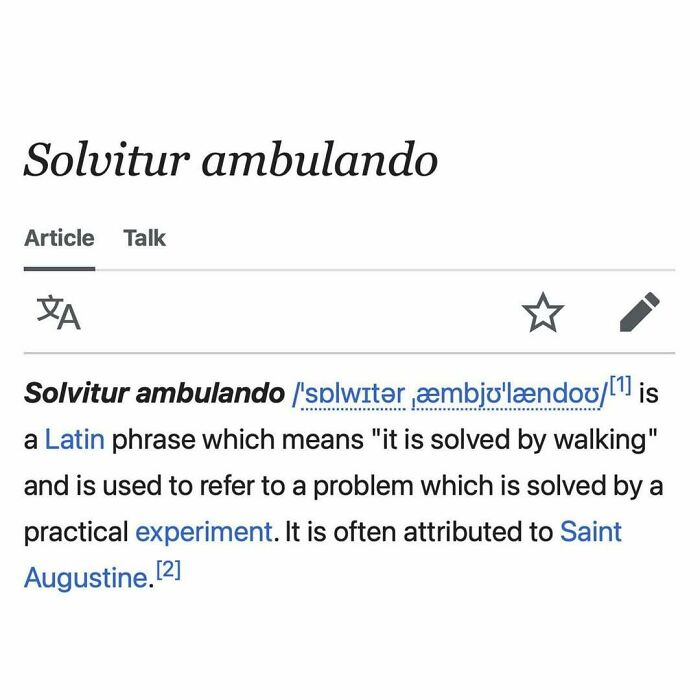
Image credits: depthsofwikipedia
#42

Image credits: depthsofwikipedia
#43

Image credits: depthsofwikipedia
#44
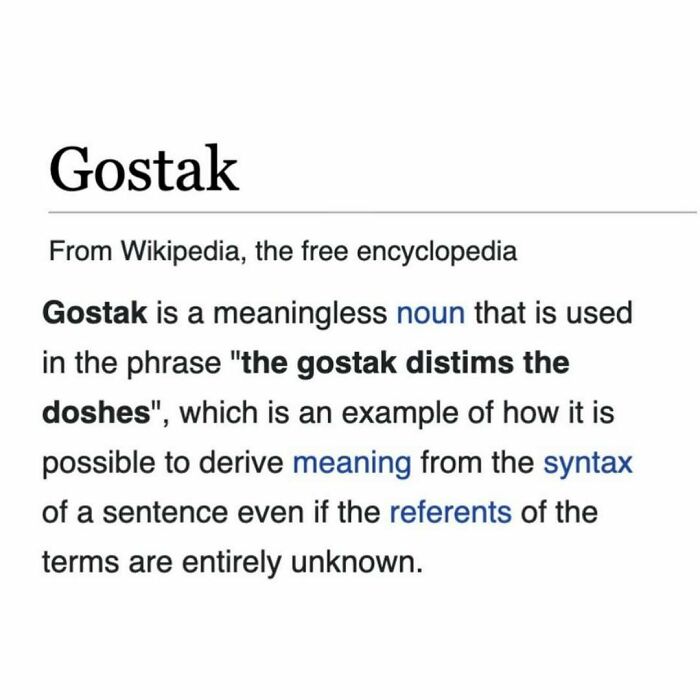
Image credits: depthsofwikipedia
#45

Image credits: depthsofwikipedia
#46
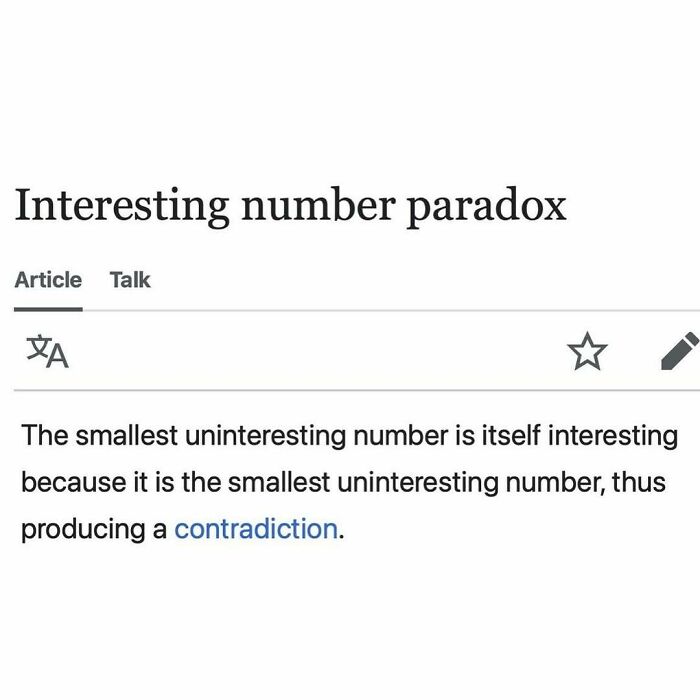
Image credits: depthsofwikipedia
#47

Image credits: depthsofwikipedia
#48
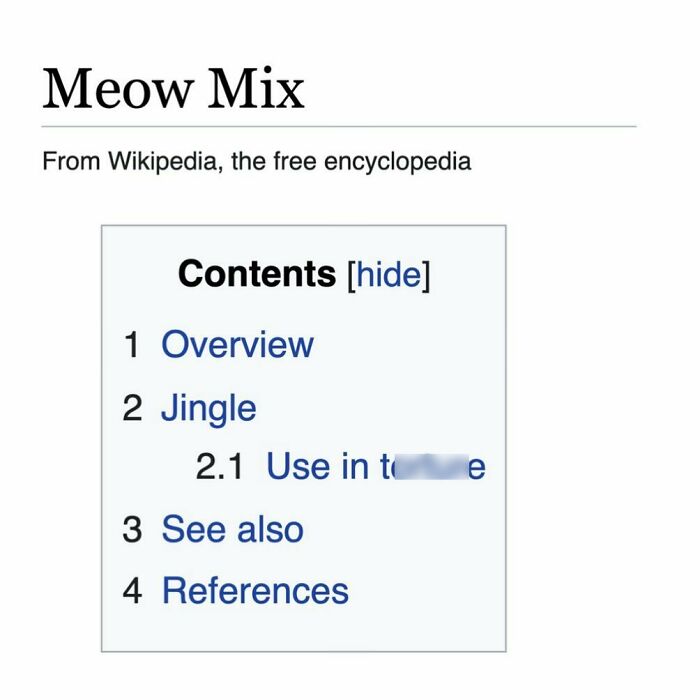
Image credits: depthsofwikipedia
#49

Image credits: depthsofwikipedia
#50

Image credits: depthsofwikipedia
#51
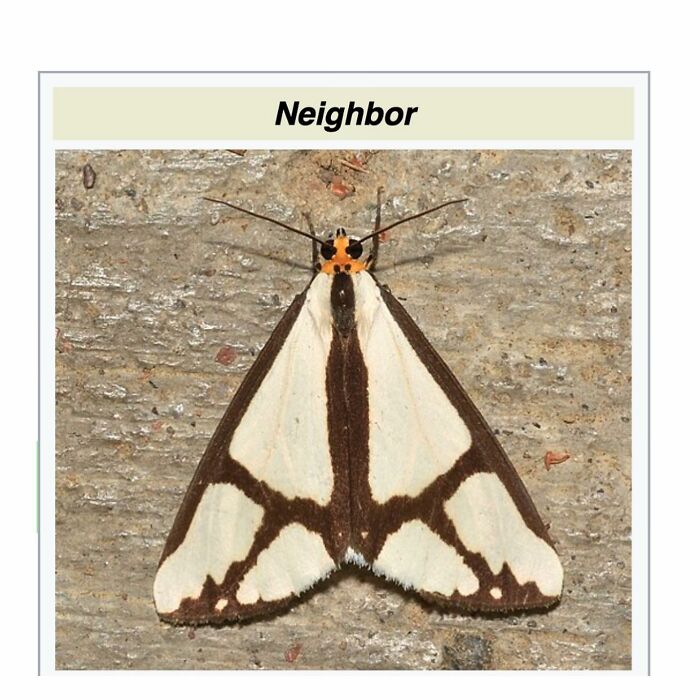
Image credits: depthsofwikipedia
#52

Image credits: depthsofwikipedia
#53
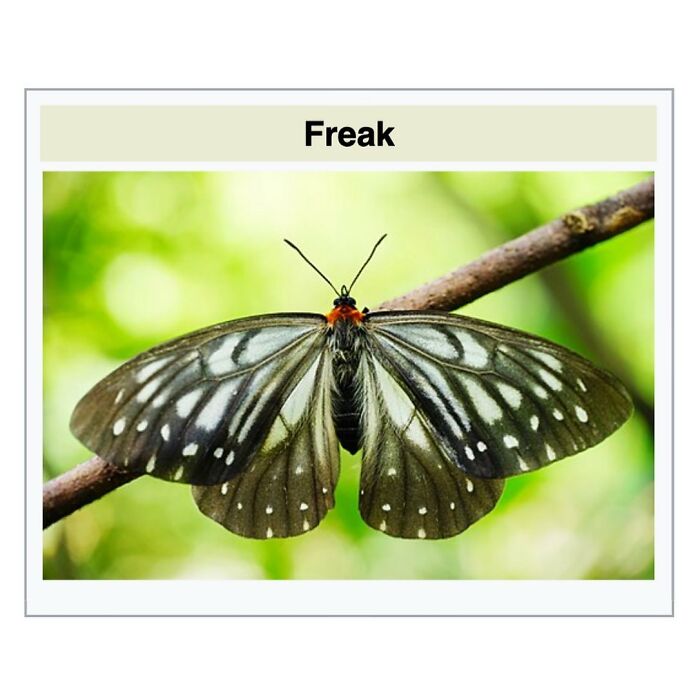
Image credits: depthsofwikipedia
#54
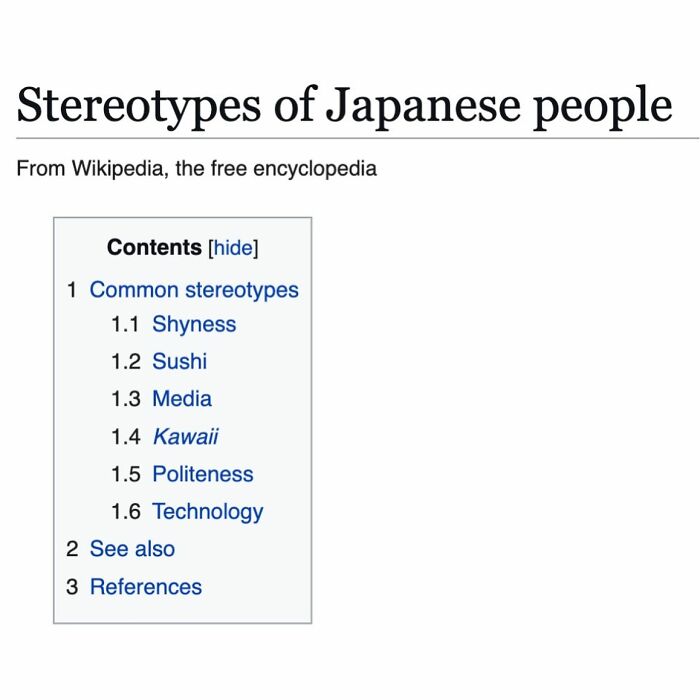
Image credits: depthsofwikipedia
#55

Image credits: depthsofwikipedia
#56

Image credits: depthsofwikipedia
#57

Image credits: depthsofwikipedia







